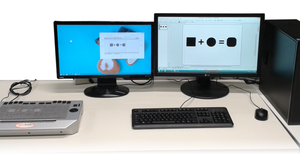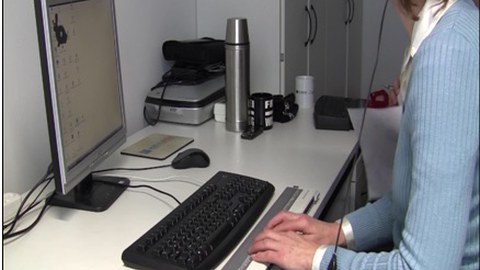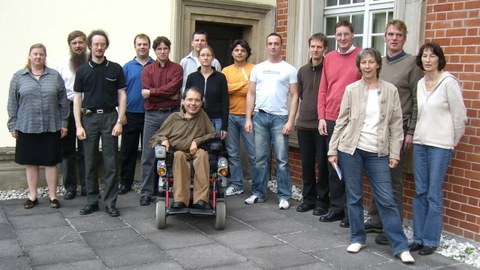Research on Accessible Computing
Accessible Computing concerns, for example, lack of access to the Web, to eLearning, to graphical notations, or the utilization of mobile devices. We investigate solutions for people with a disability.
Our research in the field of HCI
At the Chair of HCI people with special needs who are using computers are in the focus of our research.
We develop solutions such as access to the graphics in graphical user interfaces by novel screen readers in project Hyperbraille. More than 50 participants have evaluated the results. In the following project Tangram has been awarded to us, in order to allow the collaborative production of tactile graphics together with a pin-matrix device. The ongoing project MOSAIK aims at a solution allowing blind people to create graphics and draw by themselves.
For the improvement of mobility of blind people we developed in MOBILITY an app to support navigation inside Frankfurt airport. A novel approach for measuring the accuracy of the user's mental map was created. A major problem for indoor navigation are obstacles. In project Range-IT we develop together with partners a wearable system for obstacle recognition. The multimodal interaction with the context is still demanding for the user, however.
Earlier projects such as Multireader and mAIS showed successfully how to personalize books to readers, and realtime information for transportation passengers, even if they are blind, have low vision, are hearing impaired, or are physivcally impaired. Other types of disability such as dementia or dyslexia are very heterogeneous. This requires a considerable infrastruture and in particular semantic technologies for the adaptation of user interfaces to these target grous. Project Cloud4All has developed such an infrastructure covering a wide range of applications and operating systems.




